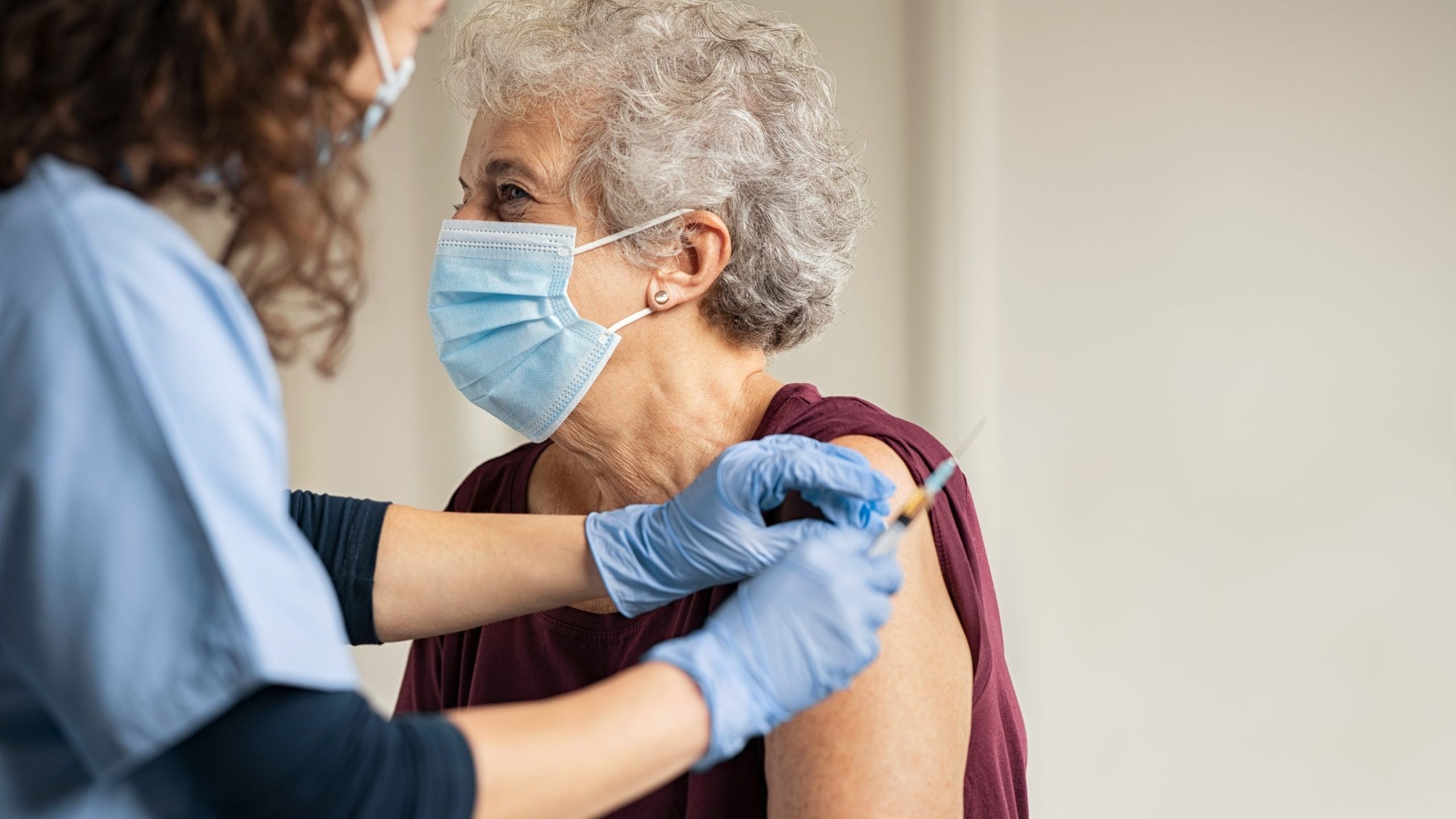The Alabama Department of Public Health on Friday announced an expansion of COVID-19 vaccinations statewide to include those aged 75 and older, law enforcement and firefighters, by appointment only, starting Jan. 18.
The move is the first such expansion since the state began administering vaccines to the approximately 326,000 at-risk medical workers and nursing residents and staff last month.
Appointments at locations throughout the state are made on a first-come, first-served basis, according to a press release from Gov. Kay Ivey’s office.
“The addition of these groups is not a full expansion into the next phase of the vaccine rollout,” the release states.
“We recognize that demand for vaccine exceeds supply,” said State Health Officer Dr. Scott Harris in a statement. “While there is still an insufficient amount of the vaccine supply, we want to maximize our resources to help protect Alabamians at high risk.”
County health departments are working with their local points of distribution to assess what their vaccination reach has been, Harris continued.
“Decisions about the next groups to vaccinate are made at the community level with community engagement. If the very high-risk population has been covered adequately, providers can then begin vaccinating people in the other priority groups,” Harris said.
Those seeking to schedule an appointment for the free vaccination may call the ADPH toll-free phone number at 1-855-566-5333. Calls are to be answered from 8 a.m. until 5 p.m. seven days a week, according to the release.
Vaccination locations can be viewed here and additional specific information, such as what to bring and what to wear, will be provided when appointments are made, according to the release.
Those wishing to be vaccinated at sites other than a county health department, such as a private provider, should contact those sites directly, according to the release.
While the expanded vaccinations are a step toward speeding up the life-saving protection, vaccine rollout in Alabama has lagged behind all but a handful of states, and despite the news Friday the state remains in phase 1a of ADPH’s vaccination plan.
As of Jan. 2, there were only enough doses of the Pfizer and Moderna vaccines to give the first shot of vaccine to four percent of Alabama’s population. Of those doses, just under 19 percent, or 42,810 had been administered. During the week ending Jan. 2, the state vaccinated on average 3,190 people each day.
Calhoun County became one of the first two counties in the state to move into phase 1b, in a limited form, and began Tuesday vaccinating the first of the two required doses of vaccines to those aged 75 and older at the Anniston City Meeting Center on a first come, first served basis. Etowah County on Monday evening decided to move fully into phase 1b, according to al.com.
The demand quickly outstripped the county’s supply of vaccines, however, and within about two hours from beginning vaccinations on Wednesday there wasn’t enough to continue.
Calhoun County Emergency Management Agency director Michael Barton, speaking to APR on Wednesday, said the county vaccinated approximately 700 people aged 75 and older and another 270 at-risk medical workers and first responders, and on Wednesday vaccinated another 500 of those aged 75 and older and another 340 medical workers. The county had enough vaccine to administer to another 500 older persons and about 250 medical workers on Thursday.
It’s up to ADPH and the county’s vaccination partnering site, Northeast Alabama Regional Medical Center, to order additional vaccines, Barton said, and he expected that to happen quickly.
“But they requested far more than was gotten on this first round, so we know the need is out there,” Barton said.
The move to expand vaccinations in Calhoun County came within hours after officials calculated that enough at-risk medical workers had been vaccinated, Barton explained.
“We didn’t want to wait a day. A day matters,” Barton said.
Approximately two people aged 75 or older had been dying in Calhoun County every day for the previous three weeks, Barton said, so they chose to focus on those most vulnerable in phase 1b. While Phase 1b also includes frontline workers such as teachers, postal service workers and grocery store workers, there were simply not enough vaccines to broaden the scope, Barton explained.
“It’s to everybody’s advantage if the health department can get the vaccine out into the public sector, in terms of to the doctors offices , to the pharmacies,” Barton said. “Spread it out as widely as possible.”
As of Friday just five pharmacies statewide were listed on ADPH’s list of vaccine providers, and just a single physician, Dr. Frederick Yerby, who works out of Fayette Medical Center. County health departments, hospitals and clinics comprise the remaining 153 vaccine providers on ADPH’s list
“Government is not the answer to this solution,” Barton said. “It’s a matter of the government being able to facilitate it, but the Alabama Department of Public Health has got to be able to get it out into the doctor’s offices and the pharmacies as quickly as possible, and they will get it out to the people.”
Ryan Easterling, a spokesman for ADPH, in a message to APR on Thursday said the department continues to enroll new providers every day.
“Pharmacies are currently involved in our state’s efforts to get the vaccine distributed to our nursing homes and long-term care facilities, and the Alabama Department of Public Health is working to utilize the pharmacy program as we move in to other phases of the rollout in order to most effectively make the vaccine available to Alabamians,” Easterling said. “We will have a news release coming out soon with additional information.”
Asked if there are doctors offices administering vaccines in Alabama, Easterling said at this point there are “very few” physicians offices in Alabama that have received vaccines.
“Some have already received vaccine and engaged in vaccinating patients, but most are in the cue or in the process of receiving their shipments so they will be able to vaccinate in their offices as well,” Easterling said.
The federal government has left it to state governments and understaffed, underfunded state health departments to plan and disseminate vaccines.
While President Donald Trump’s Operation Warp Speed promised to get the vaccines out to states – which hasn’t been done in the amounts or speed at which it was promised – the only support to states to administer the vaccines has been cash through the CARES Act. Alabama received $4.2 million through the CARES Act for vaccine preparedness.
Barton explained that it’s a lack of clarity from ADPH on where the department is, and where things are headed, that makes the county’s task of getting residents vaccinated more difficult.
“It makes a difference with our plan. Do we need to try to have another one of these ready to go?,” Barton said of the vaccinations at the Anniston City Meeting Center this week. “Are we going to get vaccines in two more weeks? We don’t have the answers to those questions, so it makes the planning process very very difficult.”
Barton, in a message to APR on Friday, after ADPH announced the change, applauded the department’s decision to move forward, and said “the vaccine is not made to sit in the refrigerator, but it must be put in the arms of people as efficiently and safely as possible.”
“From our experience in Calhoun County, we know first-hand that this is a move in the right direction and it cannot come fast enough,” Barton said.
“I applaud Dr. Scott Harris for supporting the decision that the next groups to vaccinate are made at the community level with community engagement. This is the right approach and should be expedited with coordinated and decisive leadership,” Barton said. “To be most effective, all stakeholders must be engaged and it can only be done through local partnerships and getting the vaccine into the private sector; it is imperative that this life saving remedy be put into the hands of our doctors and pharmacists as fast as possible.”



















































